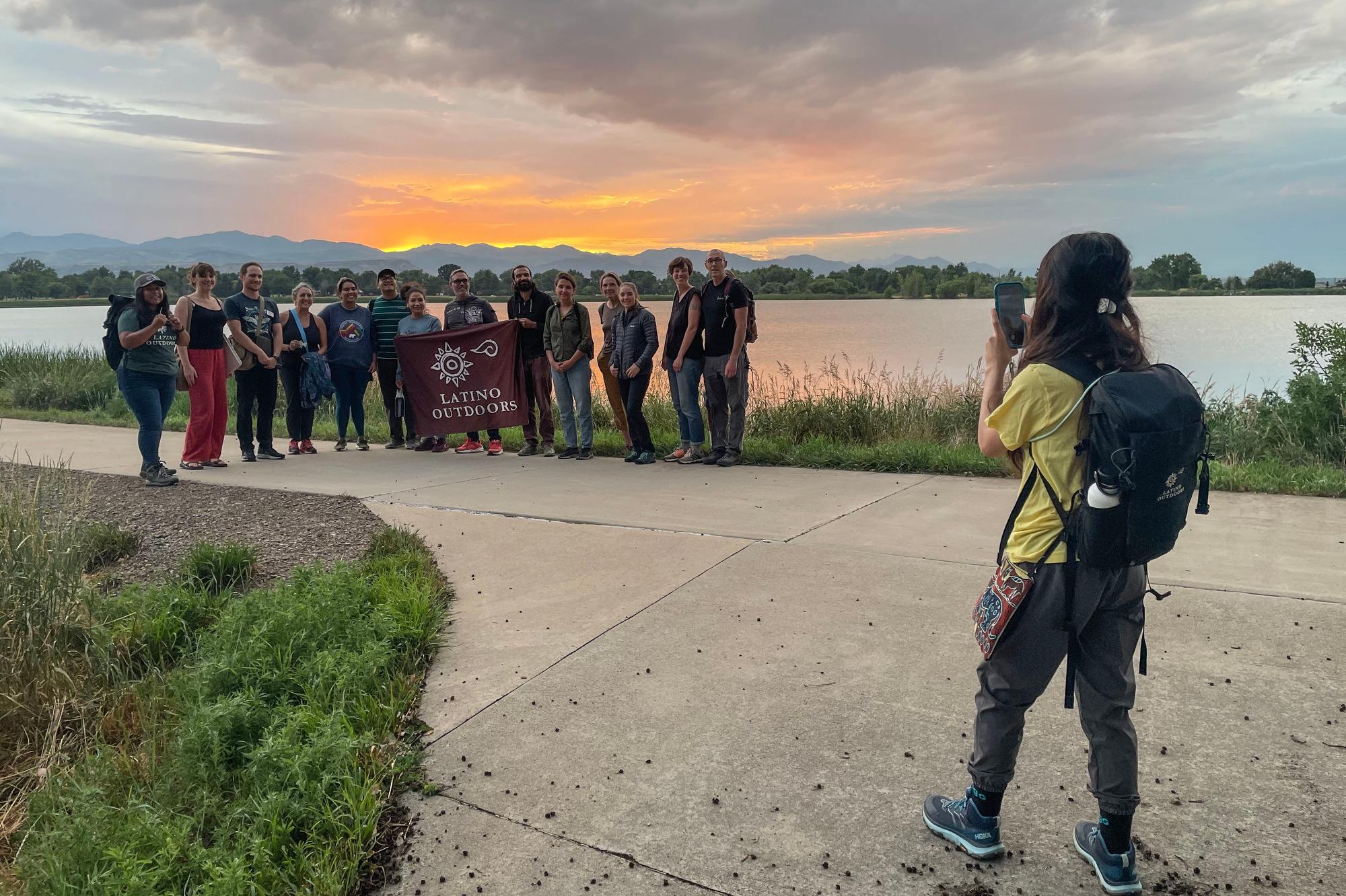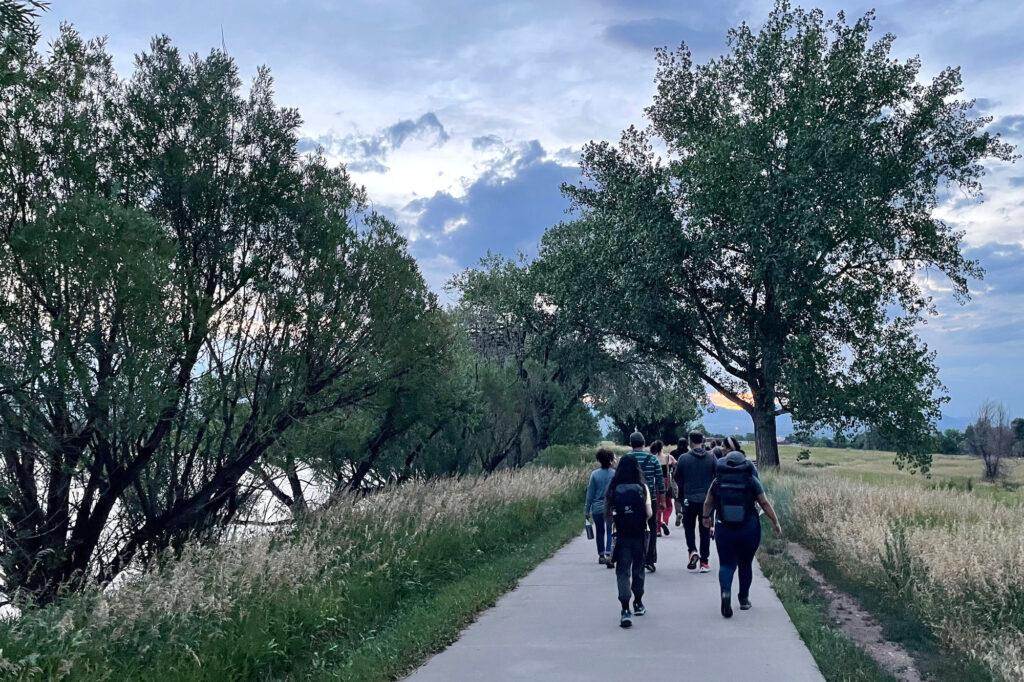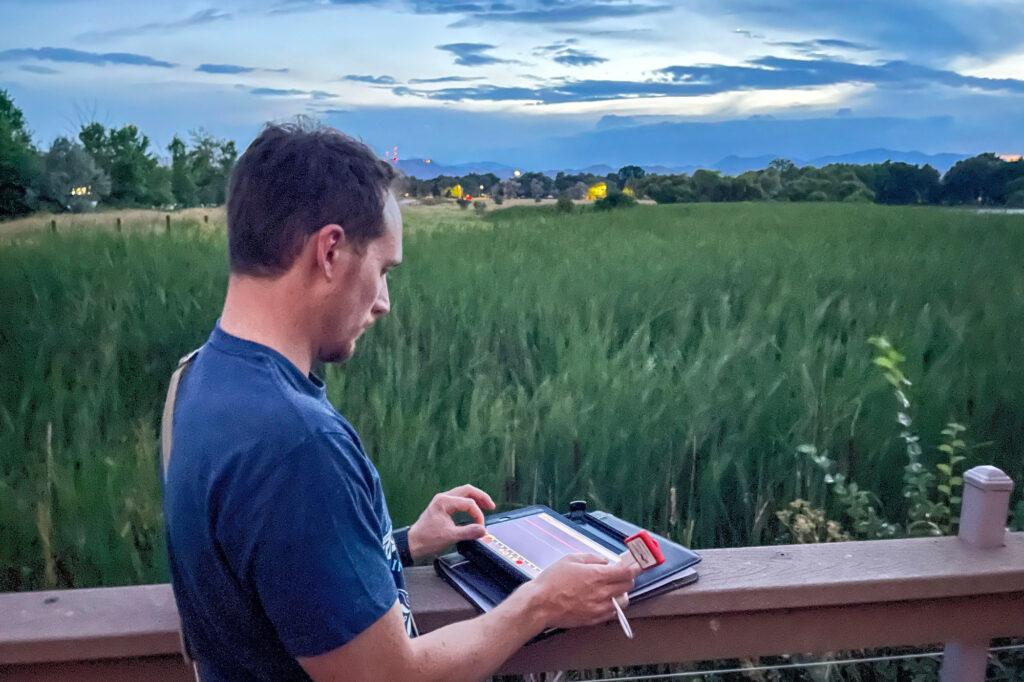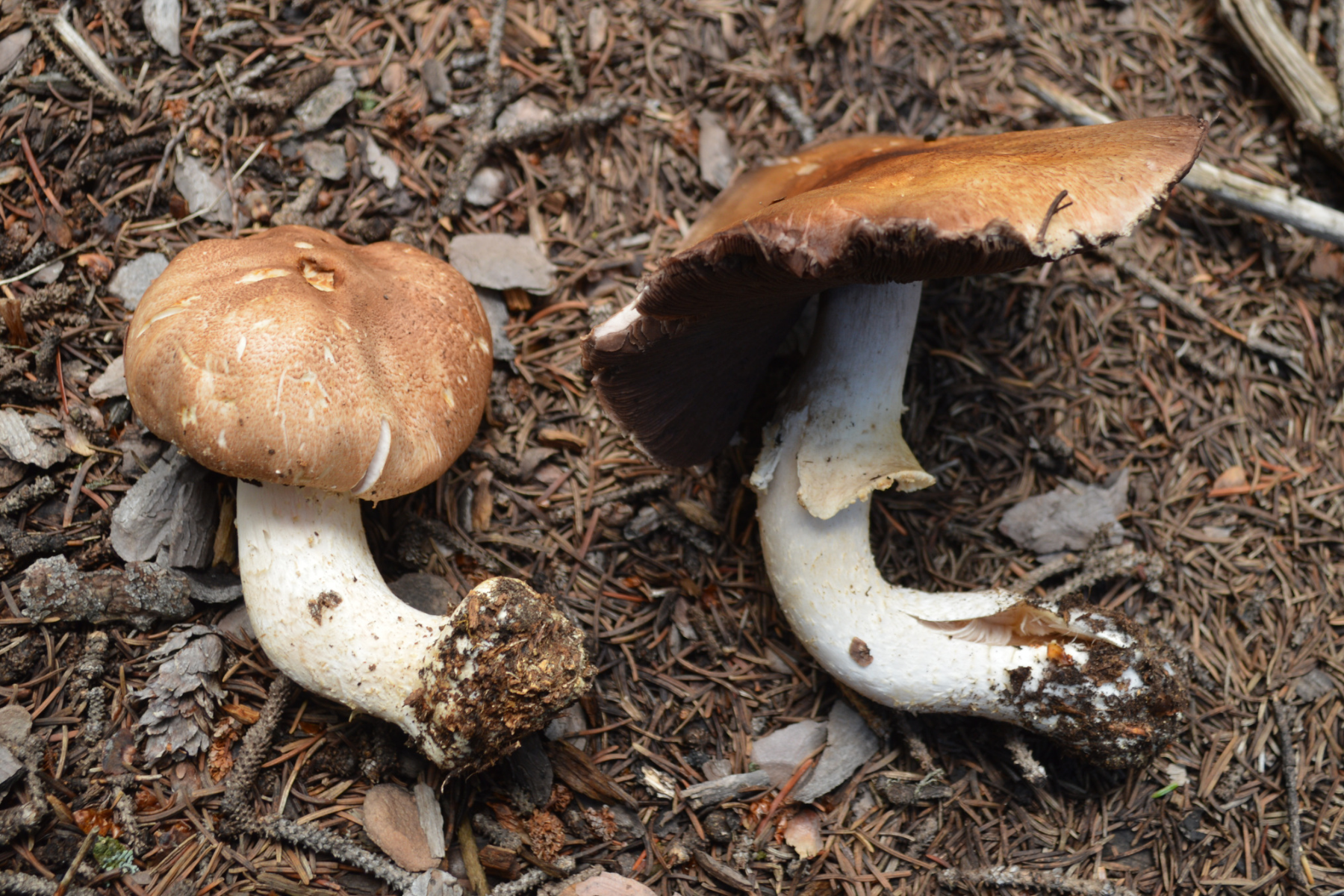
Tanya Jimenez herself has no experience with bats. But a cousin of hers in Mexico has had at least one run-in with the small creatures.
She said that’s because one flew directly into his living room once and bit him. She hadn’t heard this family story until this week, when she and a group of relatives toured Crown Hill Park in Wheat Ridge to learn more about the winged, nocturnal creatures.
“I have more questions,” Jimenez said giggling, adding that her cousin, fortunately, didn’t suffer any severe injuries or illness as a result.
And Jimenez was in the right place to ask questions. The tour was part of Latino Conservation Week, a nationwide initiative to get more Latinos experiencing nature and learning about wildlife, like bats.
Latinos in the United States have poor access to nature and the outdoors. In fact, more than half of all Latinos in the state lack equitable access to features like forests and wetlands, according to a 2020 report by the Hispanic Access Foundation and Center for American Progress, a Washington, D.C.-based think tank.

Jimenez said she didn’t explore the outdoors much while growing up in Colorado. But now that she lives in Seattle she’s gotten involved in events organized by nonprofit Latino Outdoors, which also set up Thursday’s bat tour.
“We just need to start getting out there,” she said. “The outdoors is for everyone.”
Many of the Latino Conservation Week events in the state-centered around wildlife conservation. Groups biked in Leadville, searched for beavers at Cherry Creek Trail in Denver and learned about the state’s wolf reintroduction program in a virtual seminar.
Rosie Sanchez, who helped organize several of the events for the Colorado chapter of Latino Outdoors, said the experiences were open to all.
“You don’t have to be Latino to participate in any of the activities,” she said at Crown Hill Park. “It’s a celebration.”

Aaron Sidder, an ecologist with Bat Conservation International, led the group around the park and occasionally stopped to share information about the bats. Activities like this, he said, are an opportunity to shed the negative perception many people have of bats and teach them about the diversity of the winged mammal.
“This is what conservation is all about,” he said. “You don’t have to go very far away, you don’t have to go to these crazy-wild places. We can talk about conservation, we can get exposed to nature in our backyard.”
They spotted at least three species of bats, Sidder said, including the little brown myotis and silver-haired bat. He recorded their calls using a detector connected to an iPad, which translated the ultrasonic sounds for the group to hear.
Another bat tour is scheduled for Saturday night, Sanchez said. Latino Outdoors is also hosting a bilingual yoga class and birding tour in Brighton on July 25.








